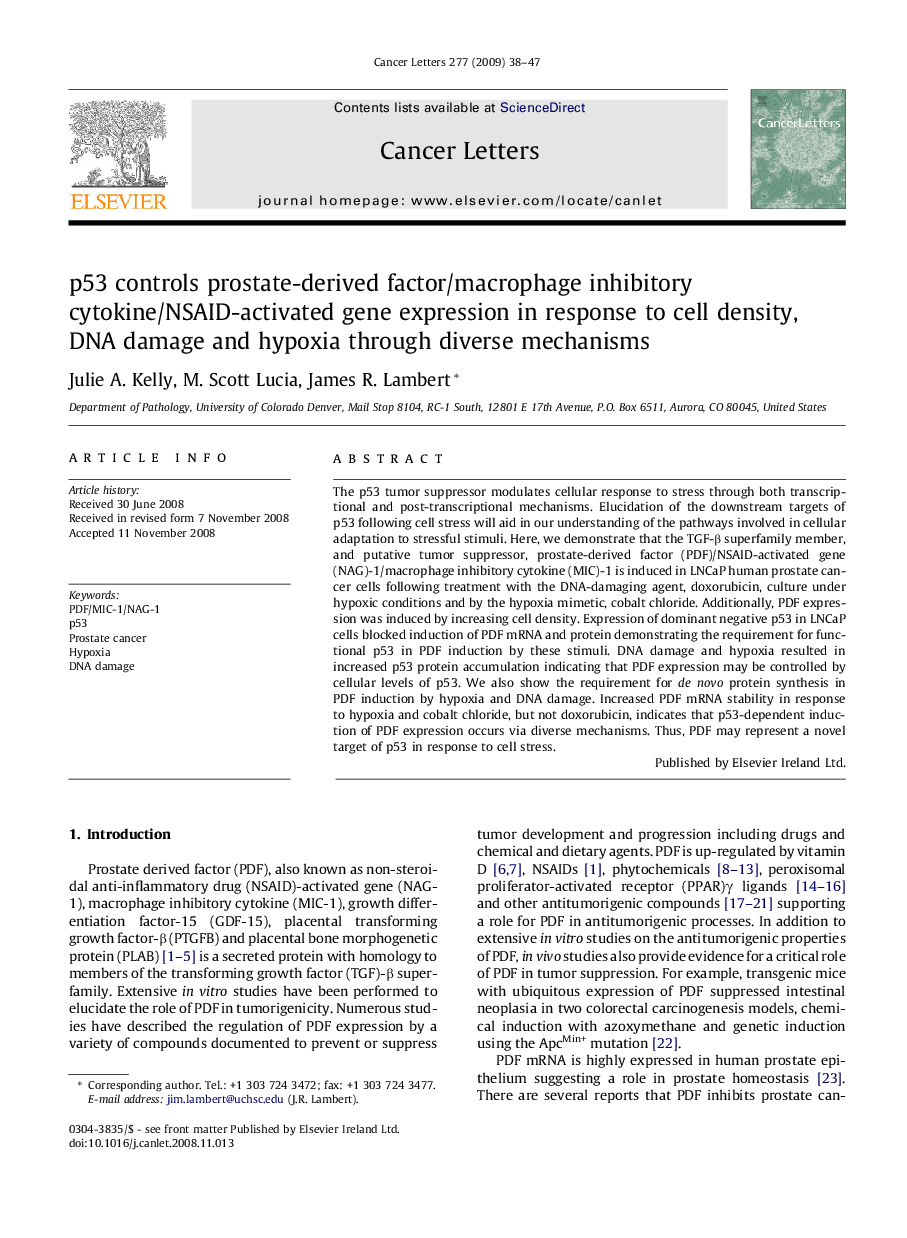| کد مقاله | کد نشریه | سال انتشار | مقاله انگلیسی | نسخه تمام متن |
|---|---|---|---|---|
| 2114558 | 1084545 | 2009 | 10 صفحه PDF | دانلود رایگان |

The p53 tumor suppressor modulates cellular response to stress through both transcriptional and post-transcriptional mechanisms. Elucidation of the downstream targets of p53 following cell stress will aid in our understanding of the pathways involved in cellular adaptation to stressful stimuli. Here, we demonstrate that the TGF-β superfamily member, and putative tumor suppressor, prostate-derived factor (PDF)/NSAID-activated gene (NAG)-1/macrophage inhibitory cytokine (MIC)-1 is induced in LNCaP human prostate cancer cells following treatment with the DNA-damaging agent, doxorubicin, culture under hypoxic conditions and by the hypoxia mimetic, cobalt chloride. Additionally, PDF expression was induced by increasing cell density. Expression of dominant negative p53 in LNCaP cells blocked induction of PDF mRNA and protein demonstrating the requirement for functional p53 in PDF induction by these stimuli. DNA damage and hypoxia resulted in increased p53 protein accumulation indicating that PDF expression may be controlled by cellular levels of p53. We also show the requirement for de novo protein synthesis in PDF induction by hypoxia and DNA damage. Increased PDF mRNA stability in response to hypoxia and cobalt chloride, but not doxorubicin, indicates that p53-dependent induction of PDF expression occurs via diverse mechanisms. Thus, PDF may represent a novel target of p53 in response to cell stress.
Journal: Cancer Letters - Volume 277, Issue 1, 8 May 2009, Pages 38–47